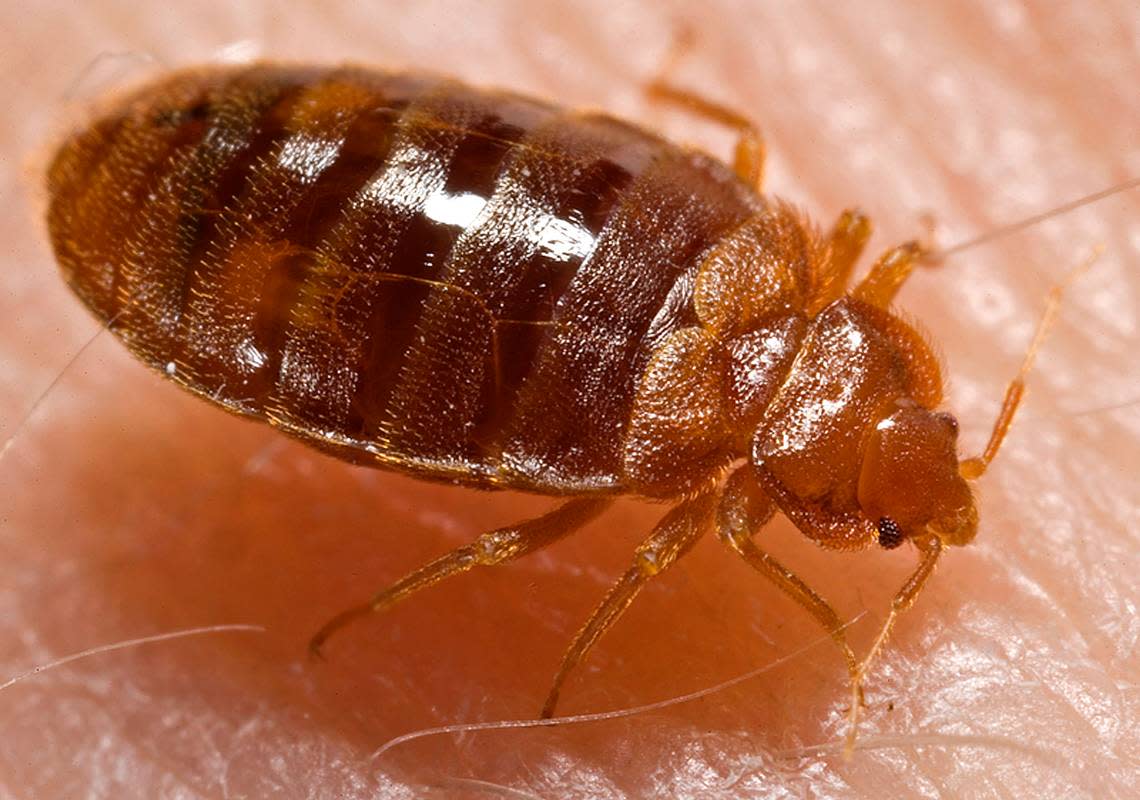Don’t bring bed bugs home. Check out these tips for safe travel in Kentucky and beyond
This summer’s travel season will likely be one for the record books with auto club AAA projecting more than 42 million Americans will travel 50 miles or more this Memorial Day weekend. That’s a 7% increase compared to 2022.
If that’s you, and a hotel stay is part of your travel plans, be sure you don’t bring home any unwelcome stowaways in your luggage. Some of the top Memorial Day travel destinations could be bustling with bed bugs. Not to mention, bed bug infestations peak in the summer.
Lexington ranked among pest control company Orkin’s 2023 Top 50 Bed Bug Cities list, jumping from 47 last year to 46 this year.
The company based its rankings on where it performed the most bed bug treatments between Dec. 1, 2021, and Nov. 30, 2022.
Louisville took the No. 49 spot on Orkin’s list, falling three spots from the 2022 edition.
Major travel destinations like Indianapolis and Columbus, Ohio – both just a three-hour drive from Lexington – ranked within the top 10, taking the No. 7 and No. 10 spots, respectively.
Chicago took the top spot, ranking No. 1 for the third year in a row. New York City followed in second, then Philadelphia in third place. Orkin put the Cleveland-Akron metro fourth and Los Angeles fifth – leaping up seven spots from last year.
It’s possible for bed bugs to stowaway in your belongings or luggage, and the little blood suckers are notoriously good at finding hiding places.
Here’s what to know to avoid bringing home any freeloading bed bugs after your relaxing Memorial Day getaway.
How to tell if there are bed bugs in your hotel room
If you aren’t taking any chances, your first move after getting the keys to your hotel room should be to strip the bed.
Check the mattress seams, the box spring underneath and the headboard, which are the initial hiding places of bed bugs, according to a guide by Michael F. Potter, an entomologist and professor emeritus at the University of Kentucky.

However, if they’ve established a real foothold, you may need to check other places as well, such as the crannies of couches or where the carpet meets the wall.
Bed bugs are nocturnal and prefer to sleep near their food source then retreat to digest their meal after feeding. Adults are only 3/16ths of an inch long and reddish brown in color with a flat, teardrop shape.
You’ll likely find their leavings before you find their hiding spot.
Five signs of bed bug activity
According to Potter’s guide, here are some top signs there may be bed bugs where you are staying:
Rusty or reddish smears on the bed sheets or mattress from blood-gorged bed bugs that have been crushed in the night.
Dark spotting or staining along the mattress seams, which is their excrement.
Hatched or unhatched eggs.
Tan-colored skins they shed are another obvious sign. Nymphs, in other words the juveniles, actually wriggle out of their skins five times before maturing.
Waking up with itchy welts you didn’t have when you went to sleep is another dead giveaway, but don’t confuse them with mosquito bites. Mosquitoes leave white bumps compared to the red welts bed bugs leave, typically in a rough line.
Sometimes people report smelling a distinct odor when bed bugs are present, though that usually isn’t the case unless you’ve got a real plague of them on your hands.
Find bed bugs? Don’t panic
According to Potter, you shouldn’t let bed bugs and the fear of picking them up while traveling ruin your vacation.
The entomologist recently told the New York Times the chance of finding them in your hotel room is “pretty darn unlikely.”
For more ways to prevent bed bugs, the U.S. Environmental Protection Agency offers these tips and others:
Regularly wash and heat dry your bedding and clothing, especially those touching the floor.
Clean up any clutter to reduce available hiding places. Vacuum thoroughly.
Stop the spread: If you throw out your mattress, slash it or destroy it in some way to prevent others from taking the mattress to reuse it
Turn to professionals if you need help.
Do you have a question about insects in Kentucky for our service journalism team? We’d like to hear from you. Fill out our Know Your Kentucky form or email ask@herald-leader.com.